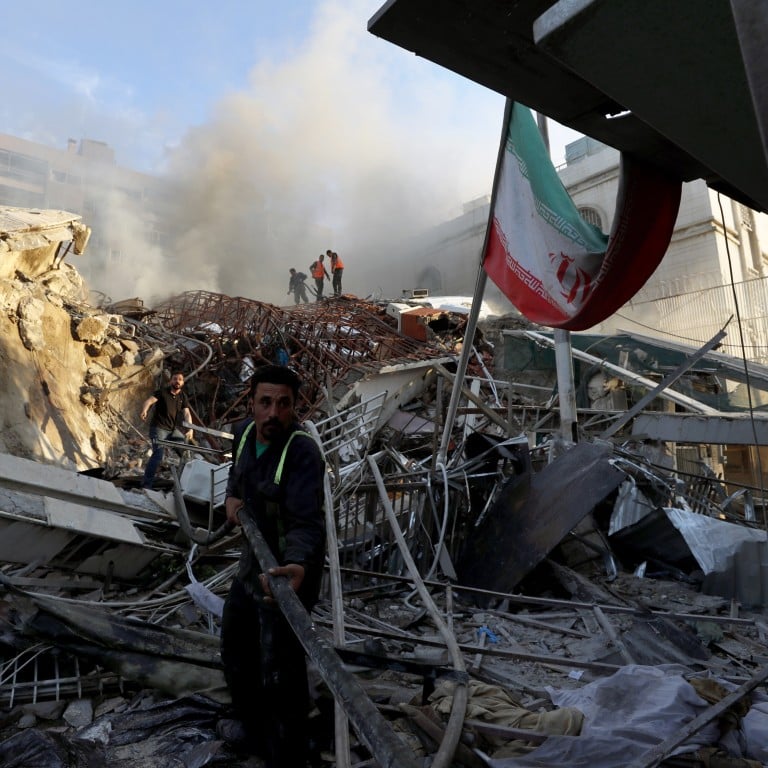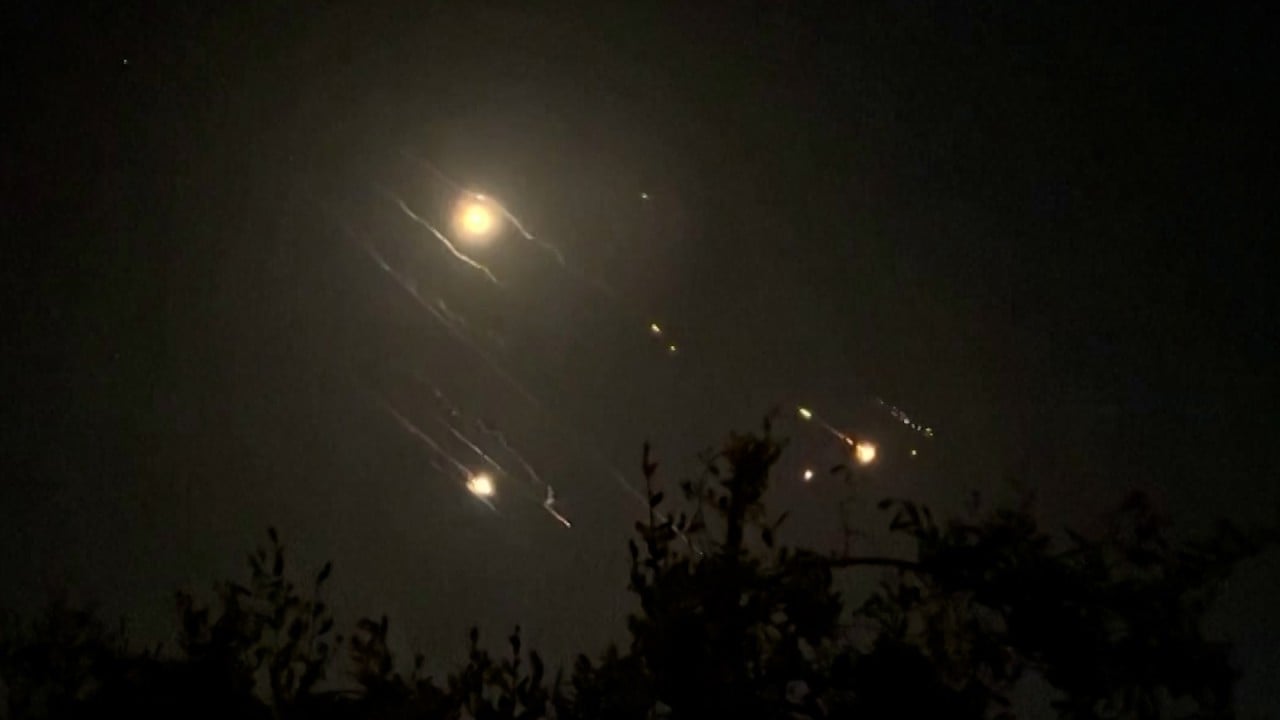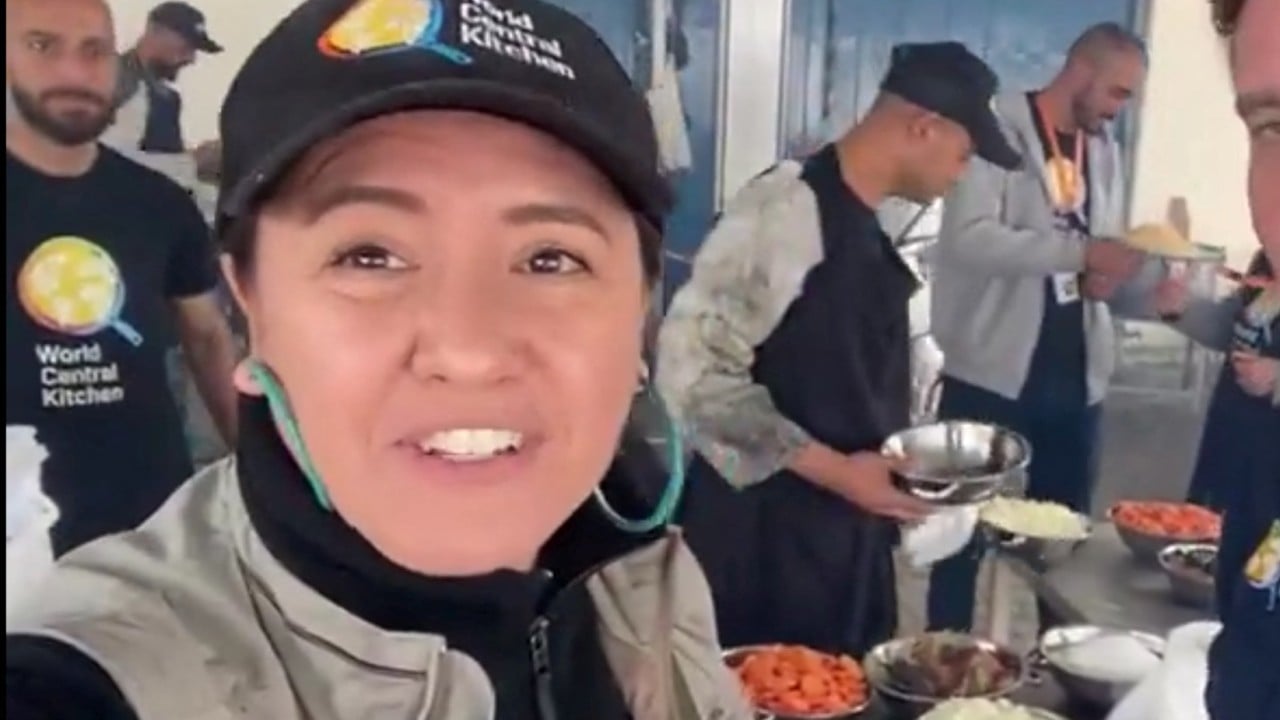
Iran tells China it will not escalate violence against Israel after air attacks as Wang Yi holds Middle East calls
- Chinese Foreign Minister Wang Yi holds calls with counterparts from Iran and Saudi Arabia, vowing Beijing will work to avoid escalation
- Saudi foreign minister says his country ‘fully trusts’ Beijing and is willing to work with China towards a two-state solution in Palestine
Hossein Amir-Abdollahian delivered the message to Wang in a phone call on Monday, according to a readout from Beijing’s foreign ministry.
“The current situation in the region is very sensitive, and the Iranian side is willing to exercise restraint and has no intention of further escalating the situation,” Amir-Abdollahian said, according to the readout.
“The Islamic Republic of Iran advocates an immediate ceasefire in Gaza and supports China’s positive efforts to promote a ceasefire, restore peace in the region and strengthen cooperation among regional countries.”
As the Gaza war entered its sixth month, the Palestinian death toll had risen to 33,729 by Monday, according to the region’s authority. Israel has recorded 1,139 casualties since Hamas’s attack on October 7 and some Israeli hostages are still being held.
However, after the air strikes by Iran, it is not clear if Israel will follow through on its initial plan to invade the city to crush Hamas.
Noting Iran’s statements that its attack was “limited” and “an act of self-defence”, Wang said China appreciated Iran’s emphasis on “not targeting regional and neighbouring countries, as well as its reiteration of continuously pursuing a good-neighbourly and friendly policy”.
“It is believed that Iran can handle the situation well and spare the region further turmoil while safeguarding its sovereignty and dignity,” Wang said, according to the foreign ministry.
Wang also later called his Saudi counterpart Faisal bin Farhan Al Saud and pledged China would work with Saudi Arabia to avoid “further escalation of confrontation” in the Middle East.
He reiterated China’s support for Palestine, saying the key solution to the ongoing Gaza conflict was to “establish an independent Palestinian state and restore the legitimate national rights of the Palestinian people”.
“The international community should take more active action to support Palestine’s full membership in the United Nations, promote the convening of a larger, more authoritative and more effective international peace conference, and form a timetable and road map for the implementation of the two-state solution,” Wang was quoted as saying.
Faisal said Saudi Arabia “fully trusts” China, adding that the two countries were “highly consistent” in their position on the current situation.
“[The] Saudi side is willing to strengthen communication and coordination with China to promote an immediate and unconditional ceasefire in Gaza, start the implementation of the two-state solution, and help achieve stability in the Middle East at an early date,” Faisal said.
Biden hosts Iraqi leader after Iran’s Israel attack throws Middle East into uncertainty
Wang’s phone calls on Monday were China’s first ministerial engagement with Iran and Saudi Arabia since Tehran conducted the series of air attacks on Israel that it said was retaliation for the April 1 attack on the embassy in Syria.
Zhai told Ben-Abba, “all parties concerned should exercise maximum calm and restraint”, adding that China was “deeply concerned” about the current escalation of tension.
“We were hoping for stronger condemnation and clear acknowledgement of Israel’s right to defend itself … Unfortunately, we did not see that, which is why we were unhappy with the statement [from the Chinese foreign ministry],” Waks said.
He also urged Beijing to tell Hamas the hostages still being held after the October 7 attack “should be set free right now”.
China has sought to become a special player in the region and helped broker a deal to restore diplomatic relations between Iran and Saudi Arabia last year.
During a UN Security Council briefing about Iran’s assault on Sunday, Dai Bing, charge d’affaires of China’s permanent mission to the UN, also called for Iran and Israel to “exercise maximum calm and restraint”.
He did not condemn either party, but Dai said China noted Iran’s stance that its military action was in response to Israel’s aggression, adding that the matter “can be deemed concluded”.
Israel Defence Forces chief of staff General Herzi Halevi said his country would respond to Tehran’s air assault.
“We are looking ahead, we are considering our steps and this launch of so many missiles, cruise missiles and UAVs into the territory of the State of Israel will be met with a response,” Halevi said on Monday.
Israel vows to press on in Gaza after Iran’s missile and drone attack
It is not known if Israel will conduct a full-scale retaliation against Iran as Washington pressures it to stay calm.
US President Joe Biden told Israeli Prime Minister Benjamin Netanyahu during a phone call on Saturday that Israel should “think very carefully and strategically” about how its forces responded to the unprecedented action.
Meanwhile, John Kirby, US national security spokesman, said the US had made it clear to Israel and Iran that it seeks to avoid a wider conflict.



